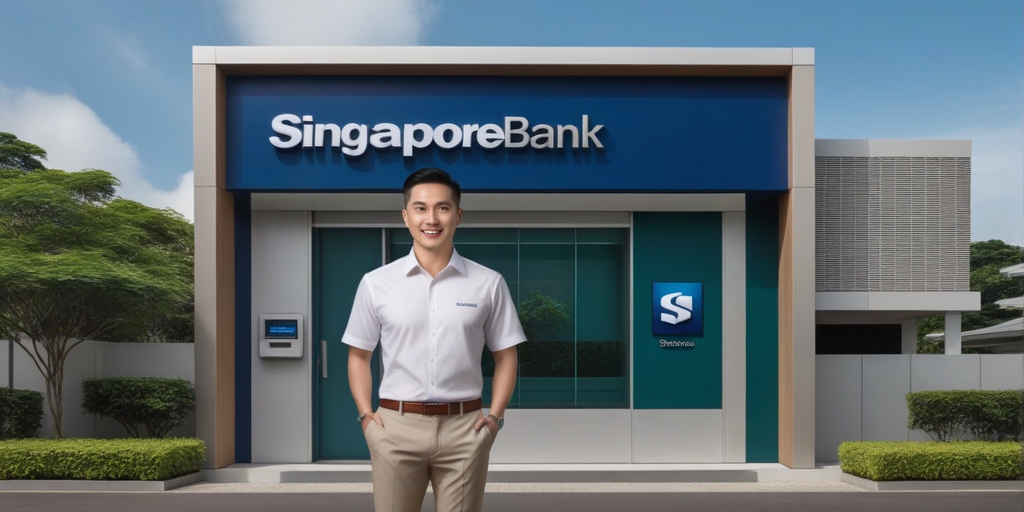
A debt consolidation plan in Singapore or a DCP offers a strategic solution for managing multiple debts, helping you streamline your finances and simplify your repayments.
By consolidating your outstanding unsecured credit facilities, such as credit card balances and certain unsecured loans, into a single plan with a participating financial institution, you can benefit from a structured repayment schedule and potentially lower interest rates.
Understanding the key features and eligibility criteria of DCPs is crucial to making an informed decision about your financial management.
Financial institutions determine eligibility and application processes for DCPs and require careful consideration of your financial situation and credit history. It’s essential to explore the various offerings from different institutions and compare their terms and conditions to find the best fit for your needs. With the right DCP, you can take control of your debt and work towards a more stable financial future in Singapore.
Key Takeaways
- Debt Consolidation Plans in Singapore provide a structured approach to managing multiple debts.
- Understanding eligibility criteria and key features is essential when considering a Debt Consolidation Plan.
- Careful comparison of offerings from different financial institutions is crucial to finding the right fit for your financial needs.
Understanding Debt Consolidation Plans

If you’re struggling with multiple debts and finding it hard to keep up with repayments, a Debt Consolidation Plan (DCP) could be the solution you need. This plan is designed to help you manage your debt by combining all your outstanding unsecured debts into one loan with a lower interest rate, making repayments more manageable.
What Is a Debt Consolidation Plan?
A Debt Consolidation Plan (DCP) is a debt management tool that allows you to combine all your existing credit card debts and personal loans into a single loan with a lower interest rate. The loan is then repaid in automatic monthly payments, much like a personal instalment loan, for up to 10 years.
One of the main benefits of a DCP is that it allows you to simplify your finances by consolidating all your debts into one. This can make it easier to manage your repayments and ensure you don’t miss any payments or incur late fees.
Benefits of Debt Consolidation
There are several benefits to consolidating your debt with a DCP. Firstly, you can often benefit from a lower interest rate, which can help you save money on interest charges over the life of the loan. This can also help to reduce your monthly repayments, making it easier to manage your finances.
Another benefit of a DCP is that it can help to improve your credit score. By consolidating your debts into one loan, you can reduce the number of accounts you have open and your overall debt-to-income ratio. This can make it easier to get approved for credit in the future and help improve your credit score.
A Debt Consolidation Plan can be a great way to simplify your finances and manage your debt more effectively. If you’re struggling with multiple debts and finding it hard to keep up with repayments, it’s worth considering a DCP as a potential solution.
Debt Consolidation Plan in Singapore: Eligibility and Application

If you’re struggling to pay off your debts, a Debt Consolidation Plan (DCP) can help you combine your debts into one monthly payment to save you interest charges and the hassle of keeping up with multiple bills. Here’s what you need to know about eligibility and application for a DCP in Singapore.
Who Qualifies for a Debt Consolidation Plan?
To be eligible for a DCP, you must be a Singapore Citizen or Permanent Resident with a valid NRIC. You must earn between S$20,000 and below S$120,000 per annum with Net Personal Assets of less than $2 million. In addition, you must have outstanding balances on unsecured credit facilities with financial institutions that exceed 12 times your monthly income.
Your credit bureau report will also be considered during the application process. You may not be eligible for a DCP if you have a poor credit score. However, if you have a good credit score, you may be able to negotiate better terms and interest rates.
How to Apply for a Debt Consolidation Plan
To apply for a DCP, you must gather the necessary income documents, such as your latest payslips, income tax assessment, or CPF statements. You must also provide your outstanding balance statements from your financial institutions.
Once you have all the necessary documents, you can apply for a DCP through your preferred financial institution. Some of the widespread financial institutions that offer DCPs in Singapore include DBS, OCBC, and UOB. You can compare each financial institution’s interest rates and terms to find the best option for you.
After submitting your application, the financial institution will review your application and credit bureau report to determine your eligibility. If you are approved, the financial institution will pay off your outstanding balances on your behalf and set up a repayment plan for you.
In conclusion, a DCP can be a viable solution for those struggling with debt in Singapore. Ensure you meet the eligibility requirements and gather all the necessary documents before applying. With the right financial institution and repayment plan, you can get back on track towards financial stability.
Key Features of Debt Consolidation Plans

If you are struggling to keep up with multiple loan repayments, a debt consolidation plan may be the solution for you. Here are some key features of debt consolidation plans to help you make an informed decision.
Interest Rates and Fees
Debt consolidation plans typically offer lower interest rates compared to credit card loans or personal loans. The interest rates may be fixed or variable, depending on the lender. It is important to compare the interest rates and fees of different lenders before choosing a plan that suits you.
The Effective Interest Rate (EIR) is an important factor to consider when comparing debt consolidation plans. EIR takes into account the compounding effect of interest and fees over the loan tenure, giving you a more accurate picture of the total cost of the loan.
Repayment Terms and Conditions
Debt consolidation plans usually come with a fixed monthly repayment amount, making it easier for you to manage your finances. The loan tenure can range from 1 to 10 years, depending on the lender and your repayment capacity.
It is important to note that debt consolidation plans are only available to Singapore citizens and Permanent Residents. You need to have an annual income of between $20,000 and $120,000, and your net personal assets cannot be more than $2 million.
Loan Tenure and Fixed Monthly Repayment
Debt consolidation plans offer a longer loan tenure with fixed monthly repayments, which can help you better manage your finances. The loan tenure can range from 1 to 10 years, depending on the lender and your repayment capacity.
With a fixed monthly repayment amount, you can better plan and budget your finances, ensuring that you have enough funds to cover your monthly expenses and loan repayments.
In conclusion, debt consolidation plans can be a useful tool to help you manage your finances and repay your loans. It is important to compare the interest rates, fees, and repayment terms of different lenders before choosing a plan that suits you.
Financial Institutions Offering DCPs

If you want to consolidate your debts in Singapore, you’ll be pleased to know that several financial institutions offer Debt Consolidation Plans (DCPs). In this section, we’ll look at some central banks and their DCP options to help you make an informed decision.
Major Banks and Their DCP Options
Citi
Citi offers a DCP with a loan tenure of up to 8 years and interest rates starting from 3.99% p.a. You can consolidate up to 12 times your monthly income, subject to a maximum of S$200,000.
DBS
DBS offers a DCP with a loan tenure of up to 10 years and interest rates starting from 3.98% p.a. You can consolidate up to 10 times your monthly income, subject to a maximum of S$200,000.
Standard Chartered
Standard Chartered offers a DCP with a loan tenure of up to 8 years and interest rates starting from 3.98% p.a. You can consolidate up to 12 times your monthly income, subject to a maximum of S$250,000.
HSBC
HSBC offers a DCP with a loan tenure of up to 10 years and interest rates starting from 3.8% p.a. You can consolidate up to 8 times your monthly income, subject to a maximum of S$200,000.
UOB
UOB offers a DCP with a loan tenure of up to 10 years and interest rates starting from 3.98% p.a. You can consolidate up to 10 times your monthly income, subject to a maximum of S$200,000.
Maybank
Maybank offers a DCP with a loan tenure of up to 8 years and interest rates starting from 3.88% p.a. You can consolidate up to 12 times your monthly income, subject to a maximum of S$200,000.
OCBC
OCBC offers a DCP with a loan tenure of up to 8 years and interest rates starting from 3.88% p.a. You can consolidate up to 12 times your monthly income, subject to a maximum of S$200,000.
CIMB
CIMB offers a DCP with a loan tenure of up to 10 years and interest rates starting from 3.5% p.a. You can consolidate up to 10 times your monthly income, subject to a maximum of S$100,000.
RHB
RHB offers a DCP with a loan tenure of up to 8 years and interest rates starting from 3.99% p.a. You can consolidate up to 12 times your monthly income, subject to a maximum of S$150,000.
Bank of China
Bank of China offers a DCP with a loan tenure of up to 8 years and interest rates starting from 3.88% p.a. You can consolidate up to 12 times your monthly income, subject to a maximum of S$200,000.
HL Bank
HL Bank offers a DCP with a loan tenure of up to 8 years and interest rates starting from 3.88% p.a. You can consolidate up to 12 times your monthly income, subject to a maximum of S$200,000.
Diners Club
Diners Club offers a DCP with a loan tenure of up to 8 years and interest rates starting from 3.98% p.a. You can consolidate up to 12 times your monthly income, subject to a maximum of S$200,000.
Choosing the Right Financial Institution
When choosing a financial institution for your DCP, it’s essential to consider the interest rates, loan tenure, and maximum loan amount. You should also check if the financial institution is a participating financial institution (FI) as designated by the Association of Banks in Singapore (ABS). Currently, 16 participating FIs offer DCPs in Singapore, including the major banks mentioned above.
It’s also a good idea to check for any additional fees or charges associated with the DCP, such as processing fees or early repayment penalties. By comparing the different DCP options available, you can find the right financial institution that meets your needs and helps you achieve your debt consolidation goals.
Managing Your Debt Consolidation Plan

Once you have obtained a Debt Consolidation Plan (DCP) in Singapore, it is essential to manage it effectively to ensure that you can pay off your debts as quickly as possible. Here are some tips that can help you manage your DCP effectively:
Making Timely Repayments
Making timely repayments is crucial when it comes to managing your DCP. Missing payments can result in late fees and penalties, adding up quickly. To avoid this, set up a GIRO arrangement with your bank to automatically ensure your payments are made on time.
Adjusting Your Plan
It may be time to adjust your plan if you struggle to keep up with your DCP repayments. You can contact your bank to request a lower monthly repayment amount or a longer loan tenure. However, remember that this will result in you paying more interest over the long term.
When to Consider Refinancing
If your DCP interest rate is higher than what you can obtain from other banks, it may be time to consider refinancing. Refinancing involves transferring your outstanding DCP balance to another bank that offers a lower interest rate. However, remember that refinancing may come with additional fees, so weigh the pros and cons before deciding.
Managing your DCP effectively is crucial to paying off your debts and achieving financial freedom. By making timely repayments, adjusting your plan as needed, and considering refinancing when appropriate, you can take control of your finances and achieve your financial goals.
Additional Considerations

If you are considering a Debt Consolidation Plan (DCP) in Singapore, you should keep a few additional considerations in mind. These considerations can help you make an informed decision and ensure that you are fully aware of the impact of a DCP on your finances.
Impact on Credit Score
One of the most important considerations when it comes to a DCP is its impact on your credit score. When you take out a DCP, it is essential to remember that this will be reflected on your credit report. This can hurt your credit score, especially if you have a history of missed payments or defaults on your existing credit facilities.
However, if you can make your payments on time and in whole, a DCP can improve your credit score. This is because you will be consolidating your debts into a single charge, making it easier to manage your finances and ensure you do not miss any payments.
Dealing with Multiple Debts
Another important consideration regarding a DCP is how it can help you deal with multiple debts. If you have multiple credit facilities, such as credit cards, credit lines, or unsecured loans, a DCP can help you consolidate these debts into a single payment. This can make it easier to manage your finances and ensure you do not miss any charges.
When considering a DCP, it is essential to consider your net personal assets. This includes any assets you own, such as property or investments, minus any liabilities you have, such as outstanding debts. If you have a high net personal asset value, you may be able to negotiate a lower interest rate on your DCP.
In summary, a DCP can be a valuable tool for managing your debts and improving your financial situation. However, it is essential to consider the impact on your credit score and net personal assets before deciding. By considering these factors, you can make an informed decision and ensure that a DCP is the right choice for you.
Frequently Asked Questions

How can I determine eligibility for a Debt Management Plan in Singapore?
To be eligible for a Debt Consolidation Plan in Singapore, you must be a Singaporean citizen or permanent resident, have an annual income of at least SGD 30,000, and owe unsecured debts that exceed 12 times your monthly payment. You must also have a good credit score and demonstrate your ability to repay the loan.
What are the top benefits of opting for a Debt Consolidation Plan?
The top benefits of a Debt Consolidation Plan in Singapore are lower interest rates, reduced monthly repayments, and simplified debt management. By consolidating your debts into one loan, you can avoid high-interest rates and fees associated with multiple loans. You can also enjoy a lower monthly repayment amount, which can help you manage your cash flow and improve your credit score.
Which financial institution offers the most advantageous Debt Consolidation Plan?
Several financial institutions in Singapore offer Debt Consolidation Plans, each with its own terms and conditions. You should compare the interest rates, processing fees, repayment periods, and other terms of each plan before making a decision. For example, OCBC Bank, UOB, Citibank, and HSBC offer zero processing fees on their Debt Consolidation Plans.
What steps should I take to clear my debt in Singapore rapidly?
To rapidly clear your debt in Singapore, you should first create a budget and identify areas where you can cut back on expenses. It would be best to consider increasing your income by taking on a part-time job or selling unwanted items. Additionally, you should prioritize your debt payments by focusing on high-interest debt first and making extra payments whenever possible.
Are there specific requirements to qualify for a Debt Consolidation Plan with banks like POSB or UOB?
Yes, each bank has its own set of requirements for a Debt Consolidation Plan. For example, POSB requires you to have an annual income of at least SGD 30,000 and owe unsecured debts exceeding 12 times your monthly payment. UOB, on the other hand, requires that you have an annual income of at least SGD 30,000 and owe unsecured debts that exceed six times your monthly payment.
How does a Debt Consolidation Plan compare to other debt options in Singapore?
Compared to other debt options in Singapore, such as balance transfer and personal loans, a Debt Consolidation Plan offers lower interest rates and extended repayment periods. However, it is essential to compare the terms and conditions of each option before making a decision. A financial advisor can help you determine the best option for your needs.

